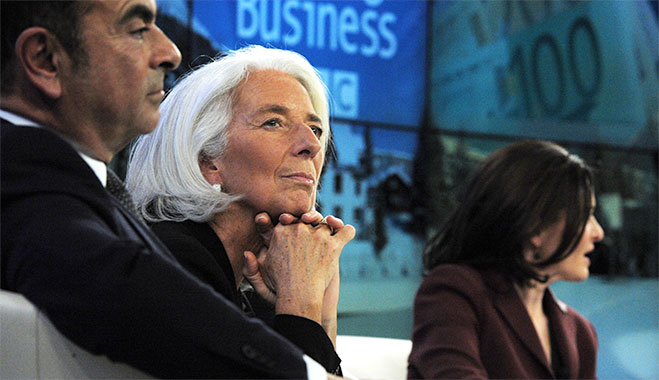
The WEF‘s AGM in Davos has finally come to a close, having brought to light a series of issues that were previously neglected somewhat by those in power. The event was the first in five years not to focus on the financial crisis, dealing instead with ‘reshaping the world’ as its central theme.
A report authored by Oxfam released shortly before the event set a precedent for much of the discussion to follow, with statistics revealing that 85 people were in possession of half the world’s wealth. As a consequence, the inequality debate was one that surfaced numerous times over the course of the week and was identified as a major factor underpinning the widespread dissatisfaction at hand in various economies across the globe.
[T]he greater our income disparities, the more likely that one is going to see increased political unrest within countries
“What one would hope for the world is social cohesion, and the greater our income disparities, the more likely that one is going to see increased political unrest within countries,” Joseph Pearlman, economist at City University London, told World Finance.
The focus on inequality also extended to the subject of gender disparity, which was inflated further still by the news that female delegates made up only 15 percent of those attending Davos – two percent shy of last year’s percentage. Women are widely believed to constitute too little a share of the world’s business leaders and the gender distribution of this year’s event only served to aggravate what is already a hot topic.
Another theme that dominated discussions was Europe’s recovery and the challenges it still faces today, in particular those with regards to youth unemployment. Harvard Professor of Economics Kenneth Rogoff described the region’s unemployment crisis as “horrific”, pointing out that only Germany had seen its rate return to pre-crisis levels.
“Governments’ fiscal policies have got to come in,” says Pearlman. “There seems to be a general view among the top economists who attended Davos that governments have been rather reluctant to engage in government investment.”
Regardless, the mood at the event was a positive one, as leaders such as the UK’s David Cameron, Australia’s Abbott and Japan’s Abe were keen to make clear the ways in which each of their respective economies were growing.
“It is more like a January jolly,” says Pearlman. What is clear from this year’s event is that important issues, especially those with regards to inequality, have emerged that those in power cannot afford to ignore.

